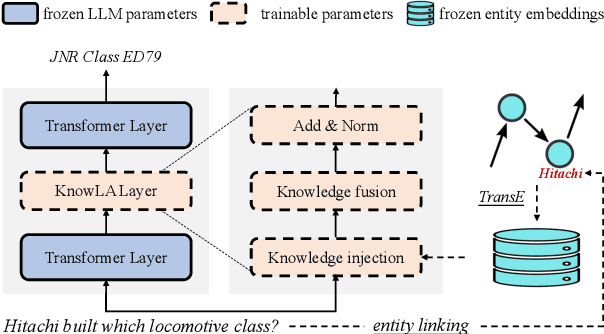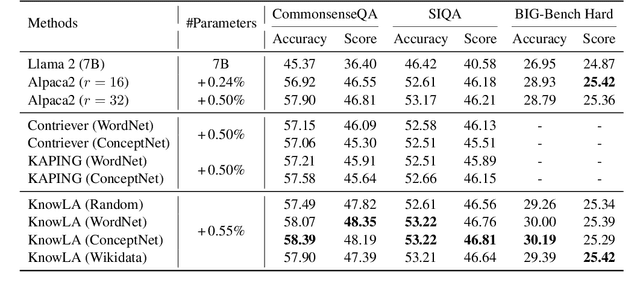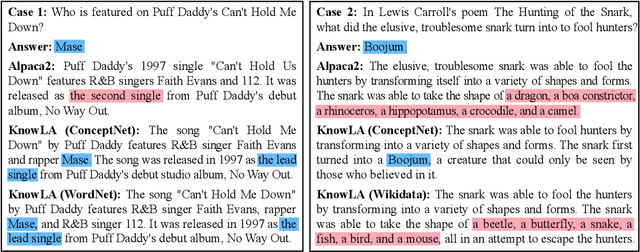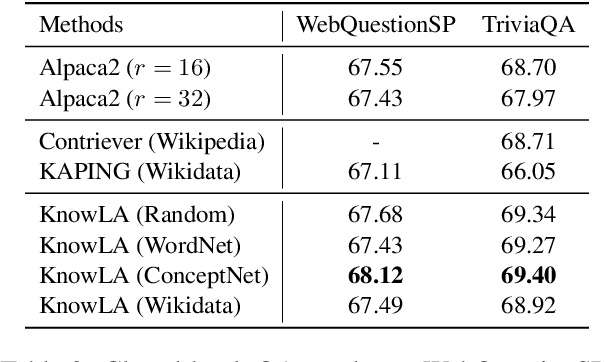Xindi Luo
KnowLA: Enhancing Parameter-efficient Finetuning with Knowledgeable Adaptation
Mar 22, 2024



Abstract:Parameter-efficient finetuning (PEFT) is a key technique for adapting large language models (LLMs) to downstream tasks. In this paper, we study leveraging knowledge graph embeddings to improve the effectiveness of PEFT. We propose a knowledgeable adaptation method called KnowLA. It inserts an adaptation layer into an LLM to integrate the embeddings of entities appearing in the input text. The adaptation layer is trained in combination with LoRA on instruction data. Experiments on six benchmarks with two popular LLMs and three knowledge graphs demonstrate the effectiveness and robustness of KnowLA. We show that \modelname can help activate the relevant parameterized knowledge in an LLM to answer a question without changing its parameters or input prompts.
$μ\text{KG}$: A Library for Multi-source Knowledge Graph Embeddings and Applications
Jul 28, 2022



Abstract:This paper presents $\mu\text{KG}$, an open-source Python library for representation learning over knowledge graphs. $\mu\text{KG}$ supports joint representation learning over multi-source knowledge graphs (and also a single knowledge graph), multiple deep learning libraries (PyTorch and TensorFlow2), multiple embedding tasks (link prediction, entity alignment, entity typing, and multi-source link prediction), and multiple parallel computing modes (multi-process and multi-GPU computing). It currently implements 26 popular knowledge graph embedding models and supports 16 benchmark datasets. $\mu\text{KG}$ provides advanced implementations of embedding techniques with simplified pipelines of different tasks. It also comes with high-quality documentation for ease of use. $\mu\text{KG}$ is more comprehensive than existing knowledge graph embedding libraries. It is useful for a thorough comparison and analysis of various embedding models and tasks. We show that the jointly learned embeddings can greatly help knowledge-powered downstream tasks, such as multi-hop knowledge graph question answering. We will stay abreast of the latest developments in the related fields and incorporate them into $\mu\text{KG}$.
 Add to Chrome
Add to Chrome Add to Firefox
Add to Firefox Add to Edge
Add to Edge